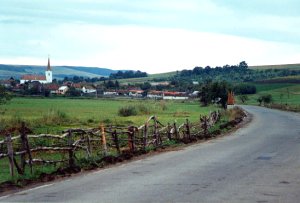Fathers' Day Sermon
I was asked to give a Fathers' Day Sermon this year. In reality it would easy to tell a couple funny stories about my dad and a couple sad ones about his death and be done with it.
I work pretty hard with my congregation to talk about the Jewish and Christian traditions and how they can inform Unitarian Universalism. I usually try to bring in at least some of the Revised Common Lectionary readings when I am in the pulpit to help folks be at least familiar with what the other protestant churches in town might be talking about.
But I have to admit, with Fathers' Day I am stumped. I think of Jephthah's daughter, Abraham with the binding of Isaac and of course the father who loved the world so much he gave his only son. I mean I love you all, but nobody is taking my boys.
I feel like I can talk reasonably intelligently about Christology, but when push comes to shove, I can't quite get past that.
I don't really want to be cheesy enough to refer to the Da Vinci code, but how is it more troubling that Jesus could be a father (all the holes in that theory aside) than the notion that a loving or just God would sacrifice his son?



